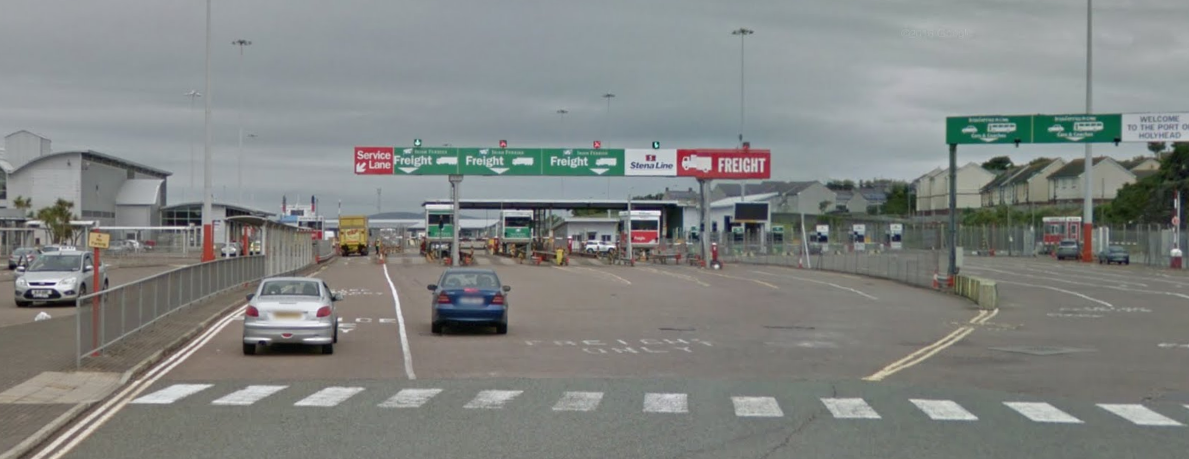
A report from last week by a Welsh Assembly committee has warned that drivers will face long delays at Welsh ports serving Ireland.
The report goes on to state that, in order to avoid disruption, then urgent action is needed. It found that having a soft border in Ireland but a hard sea boarder between the UK and the Republic Of Ireland could 'severely disadvantage Welsh ports' and 'result in a loss of competitiveness leading to a displacement of traffic from Welsh ports, principally Holyhead, to ports in England and Scotland, via Northern Ireland'.
Currently, the UK and Ireland have an agreement in place known as the Common Travel Area where passports are not a requirement for border controls & customs.
Mark Stephens, Director, Freightlink
“Anyone who has travelled through Holyhead understands that speed of transit through the port to the ferries is critical. The haulage industry JIT (Just In Time) capabilities have developed massively over the last few years with Holyhead enjoying a substantial slug of the growth with continued investment from Irish Ferries and Stena Line. Unless the efficiencies can be protected, haulage operators will have to re-evaluate supply chains which could affect support of the routes.”
 The Welsh Assembly said that freight companies could move cargo to Northern Ireland from Scottish and English ports. Currently, this trip would be done sailing directly to the Republic of Ireland from Fishguard, Pembroke and Holyhead.
The Welsh Assembly said that freight companies could move cargo to Northern Ireland from Scottish and English ports. Currently, this trip would be done sailing directly to the Republic of Ireland from Fishguard, Pembroke and Holyhead.
The ports in question are estimated to contribute over £1bn to the Welsh economy, and it’s not currently known what type of border would exist between Britain and Ireland.
The issues addressed in the report highlighted the following concerns:
- “lengthy delays at our ports”, and disruption to wider supply chains and tailbacks on roads
- "technological and logistical challenges" if new customs checks are needed and about whether ports would be able to cope with border controls.
- Supporting and protecting the 18,400 jobs that Welsh ports provide.
- Maintaining the premise of seamless travel from one side of the Irish Sea to the other for goods and people.
- The Welsh ports currently lack the physical capacity to accommodate new customs and border checks, which could have an unwelcome effect including increased delays and congestion.
A Welsh Government spokesman said it had 'set out clearly our priorities for Brexit' and stressed any changes to migration and customs rules 'would have an immediate and major impact at Welsh ports'.
"As the economy secretary made clear in his evidence to the committee, tariffs, the wider fiscal regime and customs arrangements are reserved matters for HMRC," he said.
"We have been calling on the UK government to ensure that - if they continue to insist on an approach to Brexit which would take the UK out of both the single market and the customs union - customs arrangements, which are the ports sector's key concern, are proportionate to support so-called 'frictionless' trade and do not in any way disadvantage Welsh ports.”
"We have also pressed the point that the UK government needs to provide funding for any additional requirements that Welsh ports might require as a result of arrangements post Brexit, including infrastructure."
The spokesman added it would continue to 'engage closely with the sector on the potential threats and opportunities that Brexit presents for ports' and continue to work with other partners, including its counterparts in Ireland.
The UK government's Brexit department declined to comment.
Related Brexit articles
Brexit Update (Part 1) - How will this affect UK hauliers and couriers?
Brexit Update (Part 2) – How will this affect UK hauliers & couriers (Cont.)?
Brexit Update (Part 3) - What does the falling pound mean for freight ferry travel?
Brexit Update (Part 4) - What We Learned from Theresa May
Brexit Update (Part 5) - Ireland Poses a Major Problem for EU



 United Kingdom
United Kingdom Republic of Ireland
Republic of Ireland Polska
Polska România
România Republica Moldova
Republica Moldova Российская Федерация
Российская Федерация Украина
Украина Республика Беларусь
Республика Беларусь Литва
Литва Латвия
Латвия Эстония
Эстония Deutschland
Deutschland Schweiz
Schweiz Österreich
Österreich Lichtenstein
Lichtenstein Belgien
Belgien Luxemburg
Luxemburg Magyarország
Magyarország Česká republika
Česká republika Slovenská republika.
Slovenská republika. España
España Italia
Italia Bulgaria
Bulgaria









